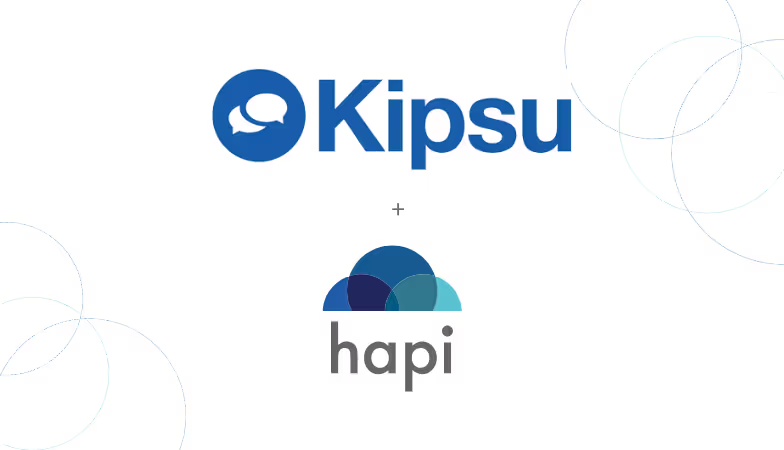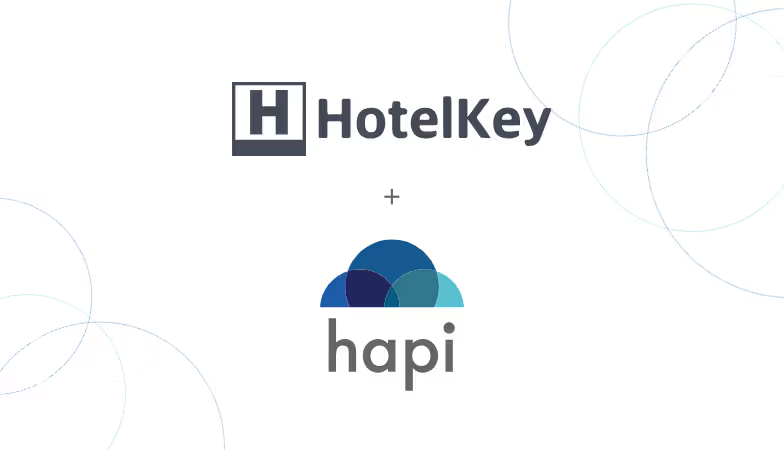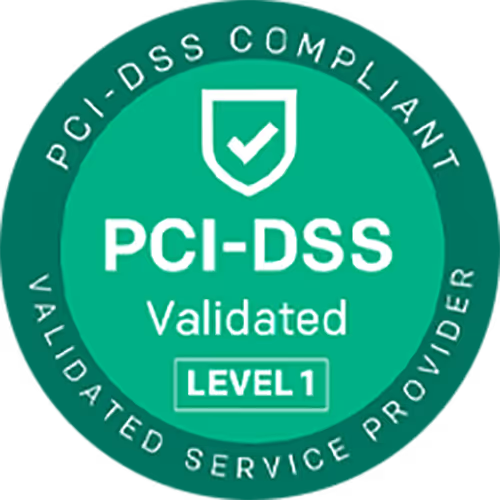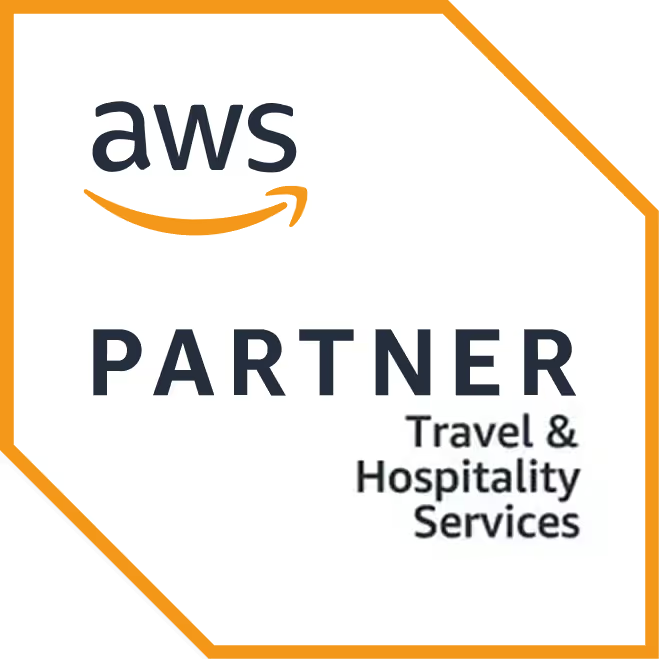HM Exclusive: Nearly 50% of hoteliers struggle to access critical data
Hapi and Revinate have released The Future of Hotel Data report, which examines how hotels manage data today, the challenges they face and what’s needed to deliver the seamless, personalized experiences guests expect.
The research reveals that while hotels are eager to access data to enhance guest experiences and drive revenue, fragmented systems, inaccurate information and limited integration remain major barriers. While the majority of hotel professionals work with data daily, nearly half (49 percent) struggle to access the data needed for critical revenue and operational decisions. Further, a staggering 40 percent cite disconnected systems as their biggest obstacle. Poor data quality emerged as the top barrier to personalization, with nearly one in five hoteliers reporting it prevents tailored guest experiences, putting guest satisfaction, loyalty and upsell opportunities at risk.
The report also explores how AI and automation are poised to transform hospitality through dynamic pricing, real-time personalization, and operational efficiency. However, for AI and automation innovations to succeed, there’s a need for standardized, integrated and trustworthy data foundations.
“Data is the foundation for every company, but most hotels still struggle to access and connect it effectively. Hotels are sitting on vast amounts of underutilized data, and disconnected systems and poor data quality are holding them back from creating the personalized, frictionless experiences guests expect today,” said Luis Segredo, Hapi co-founder and CEO. “This report shows there’s a clear path forward: integrate systems, improve data accuracy, and embrace AI to unlock real-time insights. Hotels that can remove these technology barriers will operate more efficiently, drive loyalty, boost revenue and ultimately gain a competitive edge in a tight market.”
Key Report Findings
- Limited Access to Data: 49 percent of hoteliers struggle to access data, limiting their ability to make informed decisions that drive revenue and operational improvements.
- Top Data Barriers: 40 percent cite disconnected systems as their biggest obstacle, preventing seamless information flow across departments and hindering unified guest profiles. Other data challenges included inaccurate data (17.96 percent), disconnect between departments (13.77 percent), duplicate data (8.38 percent), lack of timely data (7.19 percent) and disconnect between properties (7.19 percent).
- Personalization Challenges: The inability to deliver personalized guest experiences was seen as a major point of contention. Nearly 1 in 5 (19.4 percent) identified personalization as one of the top areas impacted by data accuracy issues. A further 16.6 percent noted difficulty in identifying personalization opportunities.
- Data Accuracy Issues: Beyond personalization, communication lag times and service delays (18.8 percent) were also identified as top personalization challenges followed by ineffective marketing campaigns (18.2 percent). Data quality issues also hinder broader strategic efforts with 1 in 10 citing challenges rolling out enterprise-level initiatives and 14.8 percent struggling to fully understand the needs of guests.
- CRM and Loyalty Systems: 46.11 percent identified CRM and loyalty systems as priority areas for data quality improvements, which are seen as critical to strengthening guest relationships and increasing lifetime value. Other areas of improvement include sales, prospecting, and upselling (17.37 percent), operations (9.58 percent) and customer service (7.19 percent).
How This Will Help Hoteliers
Hotel Management asked Segredo and Revinate CEO Bryson Koehler their thoughts on why data accessibility will help hoteliers run their operations more efficiently and create a better guest experience. A 360-degree unified guest profile eliminates the wasted time and errors that come from jumping between systems or manually re-entering data, Segredo said. "When staff can instantly see a guest’s preferences, history and context in one place, they can personalize interactions in real time, anticipate needs before the guest asks and offer upsells that feel relevant rather than pushy," he said. "It also significantly reduces operational errors caused by mismatched or incomplete records, which can otherwise erode trust and satisfaction.
"Our research found that 49 percent of hoteliers struggle to access data and 40 percent cite disconnected systems as their biggest obstacle. Connecting these systems means personalization stops being aspirational and starts being operational, creating more memorable stays for guests and more efficient workflows for staff."
Koehler believes the number one pain point a hotelier faces is messy data and data silos. "The survey findings for The Future of Hotel Data highlight this, too," he said. "The best way out of this is to build a tech stack that has a CDP and a CRM. A CDP is critical to unifying and synthesizing data through a deduplication process. It is important to note the differences between the deduplication capabilities of a CDP and the simple merge process of a CRM. The final result is a database with rich guest profiles that allows hoteliers to send the right message, with the right offer to the right guest at the right time through the right channel."
Future Opportunities
- Guest CRM and Loyalty Personalization: With nearly half of hoteliers identifying CRM and loyalty systems as top areas of data quality improvements, strengthening the data in these systems enables more personalized guest engagement, more effective promotions and greater lifetime value.
- System Integration and Usability: Fragmented systems slow down operations and limit data insight. Hotels that invest in integrated, user-friendly platforms can unlock powerful real-time insights, reduce manual work and create a foundation for advanced technologies like AI.
- AI for Personalization and Efficiency: AI can help enhance personalization, streamline operations and automate decision-making. Hotels envision using AI to deliver real-time offers, optimize marketing and improve service, but there are still concerns around trust and the human touch.
- Dynamic Pricing and Automation: Real-time data powers AI-driven pricing adjustments and operational automation. By identifying repetitive tasks and surfacing timely opportunities to upsell or engage guests, hotels can boost efficiency, conversion rates and profitability.
“Clean, connected data is the key to truly understanding the needs of guests, driving amazing marketing campaigns, and delivering direct booking revenue,” Revinate CEO Bryson Koehler said. “Looking ahead, hotels that transform fragmented data into connected data systems will be able to leverage guest intelligence data and gain a significant advantage. With the right technology, they can personalize every interaction, shift share to direct channels, and drive profitability in ways that weren’t possible before. The future belongs to hotels that harness their data to operate smarter, delight guests, and grow revenue.”
The Pros and Cons of AI
AI has an important role to play in hospitality, but it’s not a silver bullet, Segredo warned. "Where it excels is in analyzing large, preferably anonymized datasets to uncover trends, anomalies and correlations," he said. "It can quickly link spikes in revenue or occupancy to factors such as guest demographics, weather patterns, or major local events. AI is also highly effective at automating repetitive, well-defined tasks like retrieving folios, checking availability, or flagging unusual transactions—tasks that free up human staff to focus on higher-touch interactions.
"However, there are still many areas where people outperform AI. Understanding intent, mood, and tone (especially in nuanced or sarcastic communication) is a uniquely human strength. People can also ask clarifying questions to uncover context and make judgment calls that weigh a guest’s history, brand standards, and the situational nuances that define hospitality. Our research shows that while AI is widely viewed as a valuable tool for personalization and efficiency, hoteliers remain cautious about over-relying on it at the expense of the human touch. The real opportunity lies in using AI as an enhancement rather than a replacement for the human skills that make hospitality special.
Privacy Concerns
Guests have a legitimate reason to be concerned about their data - data breaches cause immense damage to everyone, Koehler warned. "We all need to take necessary precautions to ensure data privacy—hoteliers, guests, tech vendors—everyone," he said. "Modern hospitality-specific CDPs are also built like data fortresses, safeguarding precious customer information and empowering data-driven strategies.
"That said, you have to consider this. Study after study shows that guests are willing to share information if it means getting personalized messages. The percentages are high—I have read 81 percent all the way up to 96 percent. People want—and expect—personalization."
Trust is the foundation of any data strategy, Segredo said. Guests won’t engage—and may actively disengage—if they feel their consent isn’t respected. "Consent must be clear, easy to understand, and honored at every stage of the data journey," he said. "Guests should be able to review, change, or withdraw their permissions at any time without friction.
"Controls are equally important. Access to data should be explicit and limited, with each system or team member granted only what they truly need to fulfill their role. This means being intentional about permissions and avoiding unnecessary exposure. Finally, the principle of least privilege ensures that information is shared only on a need-to-know basis. For example, an analytics tool designed to spot booking trends doesn’t need a guest’s name; anonymized identifiers are enough to deliver the insight without compromising privacy. When handled this way, privacy becomes not just a compliance requirement but a way to strengthen relationships and reinforce brand trust."
To access the full Future of Hotel Data report, click here.
Related Posts

Simplify the complex hotel tech landscape
Looking to make the most of your data or better connect systems?









.svg)
.svg)







.svg)














.svg)



